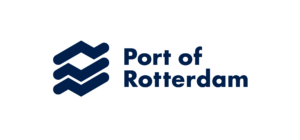THE PORT OF ROTTERDAM
We recognize the importance of collaboration in delivering exceptional storage solutions to our clients. Our partnerships with several leading tank storage companies at the Port of Rotterdam enhance our ability to provide reliable and efficient services for various liquid bulk products. As we work alongside these esteemed tank storage companies, our commitment to customer service remains unwavering. Together, we are dedicated to delivering personalized solutions that align with your business objectives, supporting your growth in the competitive marketplace.
Explore how Black Thunder Terminal, in partnership with leading tank storage companies at the Port of Rotterdam, can enhance your operations and facilitate your business success. For inquiries and more information about our services, please contact us today.

The Port of Rotterdam is strategically positioned as a major hub for international trade and logistics in Europe, occupying an area of 105 square kilometers (41 square miles) and extending over 40 kilometers (25 miles). As the largest seaport in Europe and the largest outside of Asia, it plays a crucial role in global shipping, having been the busiest port in the world by annual cargo tonnage from 1962 until 2004. While it has since been surpassed by the ports of Singapore and Shanghai in terms of cargo volume, it remains significant, ranking as the tenth-largest container port globally in 2020.
The port is composed of several key areas: the historic harbour in the city center, the Maashaven/Rijnhaven/Feijenoord complex, and various other harbours including Waalhaven, Vondelingenplaat, Eemhaven, Botlek, and the Europoort. It also includes the Maasvlakte area, which has been reclaimed from the North Sea to accommodate growing shipping needs. This configuration allows the Port of Rotterdam to efficiently serve a hinterland that encompasses over 500 million consumers across Europe.
Rotterdam’s logistical advantages stem from its location in the Rhine-Meuse-Scheldt delta, which facilitates transportation and distribution across the continent. The port has five distinct port concessions operated by different companies, but all fall under the overall authority of the Port of Rotterdam Authority. This collaborative structure enables the port to maintain its efficiency and competitiveness in the global shipping industry, supporting a seamless flow of goods to and from various markets.